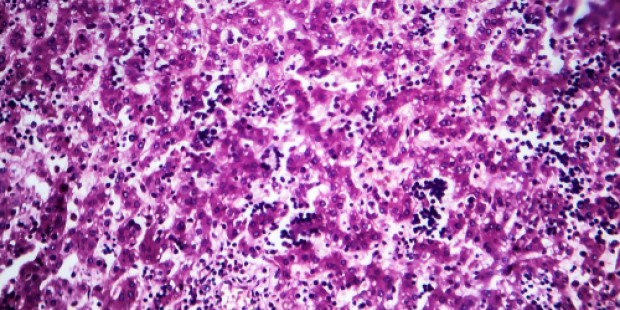The liver has an essential role in processing medicines used to treat HIV and other conditions. Viral infections that affect the liver, such as hepatitis A, hepatitis B and hepatitis C, can make the liver less able to process medicines properly.
If left untreated, liver disease caused by hepatitis C can be very serious. It’s a major cause of illness and death in people with HIV and hepatitis C co-infection.
Modern hepatitis C treatment can cure almost everyone. People living with HIV on effective HIV treatment can have similar hepatitis C cure rates as HIV-negative people.
Symptoms of hepatitis C
Many people with hepatitis C have no symptoms at all. When symptoms do occur they often involve the following:
- tiredness
- feeling generally unwell
- stomach problems
- jaundice – a yellowing of the skin and eyes.
Some people will clear the virus without treatment, but this is less likely in the case of people living with HIV.
For most people, hepatitis C continues to reproduce in the body long after infection, turning into a chronic infection. This means that they continue to be infectious, although they may not experience any symptoms at all, or not for many years.
Even with a lack of symptoms, the virus may still be damaging the liver, causing fibrosis – a hardening of the liver. This can lead to cirrhosis, which is a permanent scarring of the liver. Cirrhosis increases the risk of liver cancer.
Hepatitis C and HIV - modes of transmission
Like HIV, hepatitis C is normally transmitted by blood-to-blood contact.
The most common route of hepatitis C transmission in the UK is when injecting equipment is shared between people who inject drugs.
Hepatitis C can also be transmitted sexually. There have been serious outbreaks of sexually transmitted hepatitis C in HIV-positive gay men in the UK. Sex that involves contact with blood, even in small quantities – for example, fisting – seems to involve the greatest risk. Anal sex without a condom has also been identified as involving a risk of hepatitis C transmission, particularly if it goes on for a long time.
Mother-to-baby transmission of hepatitis C is uncommon. However, the risks are higher if the mother has HIV, especially if she has a high hepatitis C viral load.
Hepatitis C can also be passed on through infected blood getting into an open wound, through tattooing or body piercing done with contaminated equipment, or through using items such as toothbrushes or razors contaminated with infected blood.
Hepatitis C is many times more infectious than HIV.
Diagnosing hepatitis C in people living with HIV
Everyone with HIV should be tested to see if they also have hepatitis C. A blood test for antibodies to hepatitis C is used to see whether you have been exposed to the virus. You might be given a PCR (viral load) test to confirm infection.
In people living with HIV, the diagnosis of hepatitis C can be more difficult, as the infection may not show up on their antibody tests.
If you think you may be at risk of hepatitis C infection, you should have regular tests to see if you have been infected with the virus.
Treating hepatitis C together with HIV
If you’re HIV positive and have hepatitis C infection, then you must receive care from a doctor skilled in the treatment of both HIV and hepatitis.
Due to the new direct-acting antiviral drugs, people living with HIV and hepatitis C co-infection can be treated with most of the same hepatitis C drug regimens as HIV-negative people. Research has shown that cure rates are the same.
Unlike treatment for HIV, hepatitis C treatment is not for life. New drugs to treat hepatitis C only need to be taken for up to 3 months.
When should you start treatment for hepatitis C?
With the new antiviral drugs for hepatitis C, it's now recommended that everyone with hepatitis C shouldn't wait to be treated, regardless of liver disease severity.
The aim of this treatment is a cure – sometimes described as a ‘sustained virologic response’. This means that no hepatitis C virus is detectable in your blood six months after you’ve finished treatment.
Preventing hepatitis C infection
Here's how you can protect yourself against hepatitis C:
- Do not share needles, syringes or any other equipment to inject drugs.
- Use latex gloves for fisting, with a new glove with each partner.
- Do not share pots of lubricant.
- Do not share sex toys, or put a new condom on the sex toy each time you use it.
- Properly used condoms provide excellent protection against the transmission of HIV, hepatitis C and other sexually transmitted infections.
- A caesarean delivery can reduce the risk of mother-to-child transmission of the virus.
There’s no vaccine for hepatitis C. Unlike hepatitis A and B, having hepatitis C once doesn’t mean you’re then immune from getting it again. It’s possible to be reinfected with the hepatitis C virus.
How is the health of your liver monitored?
Everyone living with HIV should have regular tests to monitor the health of their liver as part of the routine check-ups carried out by their HIV clinic. These tests are especially important if you have hepatitis C.
These include liver function tests that monitor levels of liver enzymes. Ultrasounds and scans are also important monitoring tools which may be used if more information is needed.
Sometimes it’s necessary to have a liver biopsy. This involves the removal of a small amount of the liver, under a local anaesthetic, for further tests on the health of your liver.
Need support?
Call our free helpline THT Direct on 0808 802 1221 and get referred to a clinic or a counsellor in your area.




